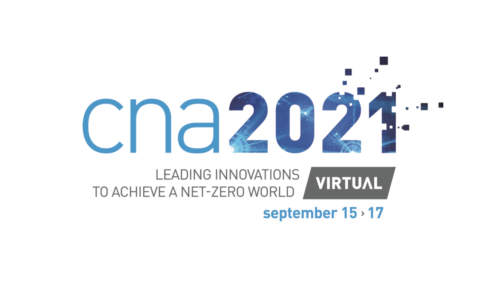
London School of Economics Honours Noted Alum Dr. John Barrett
The following is a copy of the article that appears on the LSE alumni website.
John Barrett (PhD International Relations 1982) is President and Chief Executive Officer of the Canadian Nuclear Association. He has chaired the Board of Governors of the International Atomic Energy Agency (IAEA) and the UN Commission on Crime Prevention and Criminal Justice (CCPCJ).
What are the main advantages of nuclear technologies?
Their chief advantage is that they provide an enormous source of power for the clean generation of electricity. Nuclear generators emit virtually no greenhouse gases. They stand comfortably alongside hydro-electricity, substantially ahead of wind and solar, and miles ahead of natural gas-generated electricity. Coal-based electricity is off the map, its emissions are so high.
In providing clean air, nuclear power offers a means to combat climate change. Consider its value to not only to industrialised economies but particularly large emerging economies—China, India, Brazil and others—where the consumption of electricity and energy is growing substantially and relentlessly.
Beyond power production, nuclear reactors produce radioisotopes that enable cancer diagnostics and treatment, improving millions of lives. Nuclear imaging underpins the quality assurance techniques of advanced manufacturing. We can inspect high-stress assemblies such as rotor blades in jet turbines or welds in petroleum pipelines without having to cut them open.
What are the risks and threats of nuclear energy, especially in light of Fukushima? Is it possible to prevent nuclear disasters?
One should never assume that any human endeavour would succeed perfectly. Although we strive to eliminate risks, they persist. At Fukushima, water pumps failed when the earthquake knocked out a central electrical power line, and the tsunami drowned the back-up generators. Lacking cool water, three reactor cores overheated and melted.
To reactor designers, this demonstrates the value of multiple redundant layers of protection, and of complementing electric pumps with safety systems that rely on gravity. Even without electricity, a reactor can shut down safely and autonomously without over-heating.
The International Atomic Energy Agency (IAEA) and the World Association of Nuclear Operators (WANO), which includes every power plant operator in the world, promote and enforce safety measures. Complementing this is a vigorous national nuclear regulator, operating at arm`s length from government and industry, to set the rules at the highest level and ensure compliance.
While we cannot entirely remove the risk, we can assure our citizens that we have thought through all possibilities and addressed them through defence-in-depth. We must identify, design against, control and mitigate the risks associated with highly complex technological processes. Thanks to this approach, in Canada we have had 60 years of nuclear reactor operations without fatality.
What are the main challenges you have faced in your career to date?
A complex foreign policy environment with competing interests requires careful handling. Trying to achieve consensus in a multilateral body is tough, especially when one chairs the negotiation. It takes only one dissenter to prevent an agreement. Some countries play that spoiler role happily and very well.
Challenges come from within too. Much internal discussion and self-examination is happening in foreign ministries these days. What is the role of the diplomatic mission in the 21st century, with information and reporting so constant, so de-centralized, and from so many extra-diplomatic sources?
When governments question the value and effectiveness of their foreign missions, then the focus shifts. Documenting how one achieves and measures results becomes paramount. Yet in diplomacy, results may not be quantifiable or easily measured.
What stands out most from your days at LSE?
LSE was the locus for that special time in one’s life – in this case, mine – to embark on an intellectual journey and to travel into uncharted areas of philosophy and the humanistic sciences; to think creatively and originally; to develop one’s own methodology for understanding international relations; to delve deeper than one ever had before (or for me, since) into the knowledge others purported to give. I remain quite proud of the thesis I wrote and the elucidation presented in it.
Also, the easy accessibility of the teaching staff; the camaraderie of our small band of IR enthusiasts devoting time and energy to keeping our journal, Millennium, afloat financially and filled with quality articles; and being a founder member of the British International Political Economy Group.
Who was your favourite academic?
Adam Roberts. He was my PhD supervisor before he moved to Balliol College, and before receiving his knighthood. His inimitable wit, astute observations and inquiring mind, his humanity and compassion, and his non-conformist ways put him in my pantheon of academic heroes. He has remained a lifelong friend.
Did you have a favourite place at LSE?
I had many. Before it became the Brunch Bowl, the cafeteria was characterised by long trestle tables, scraping chairs, rock cakes at 5 pence, and cups of tea at 4 pence.
Another favourite was the Beaver’s Retreat, full of professors and teaching staff with whom to debate and chat, including the redoubtable and unforgettable Philip Windsor. It was a treat to listen to his wit and wisdom, delivered in a classic radio voice.
Then there was the Millennium office, a tiny place up on the top floor of one of the buildings on Sheffield Street, just down from the White Horse. As Editor of this student-run journal of international relations, I spent quite a lot of time in that fusty eyrie.
And what of life in London?
In the late ‘70s and early ‘80s a brilliant music scene was emerging in nearby pubs and venues. My musical tastes included being a “Young Friend of Covent Garden”, enjoying opera at 90 pence a ticket. Living in N.1 meant that I could easily take in performances at Sadler’s Wells, walk to Highbury and the Clock End to watch Arsenal, or set off by foot or short bus ride to the Aldwych and the LSE.

